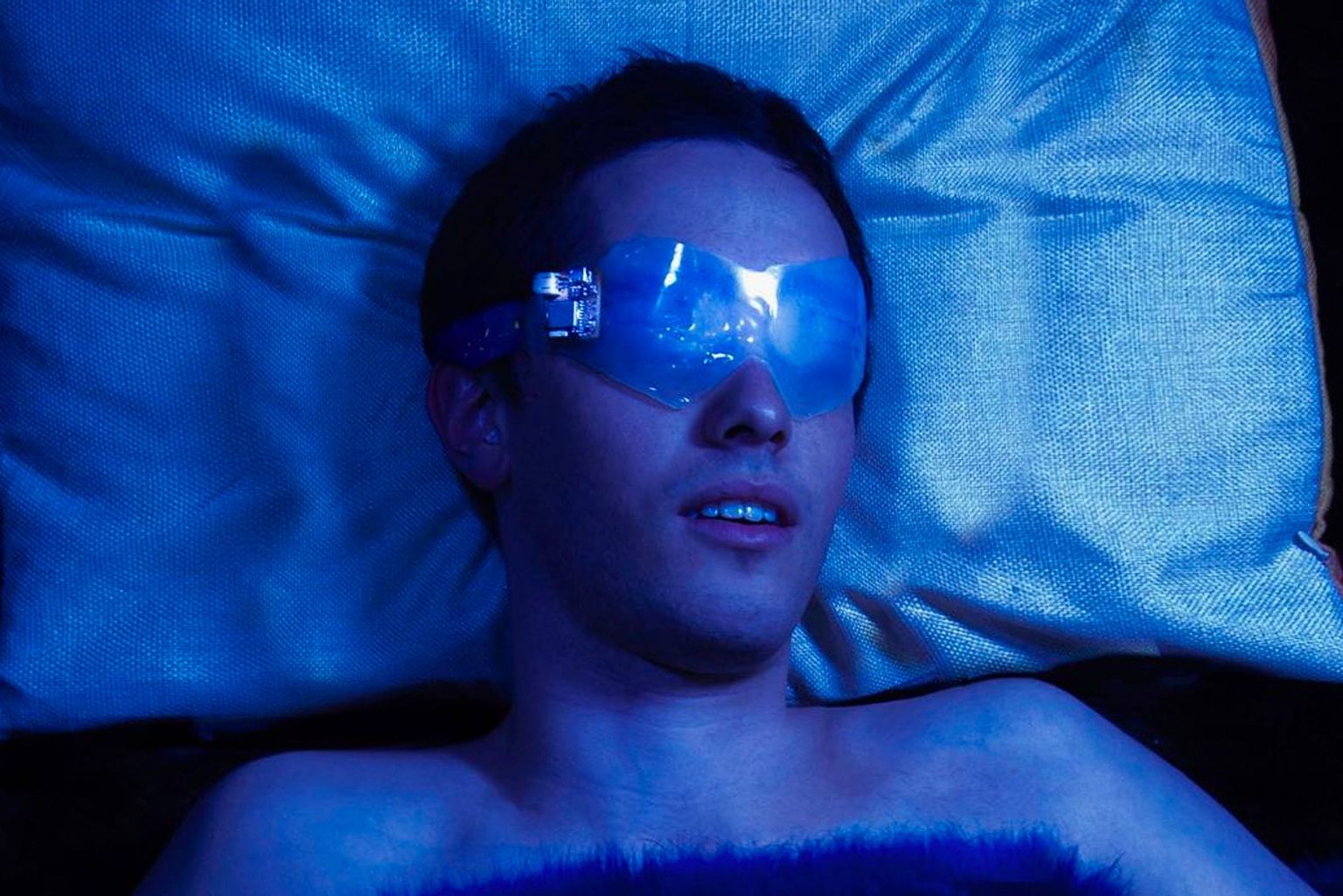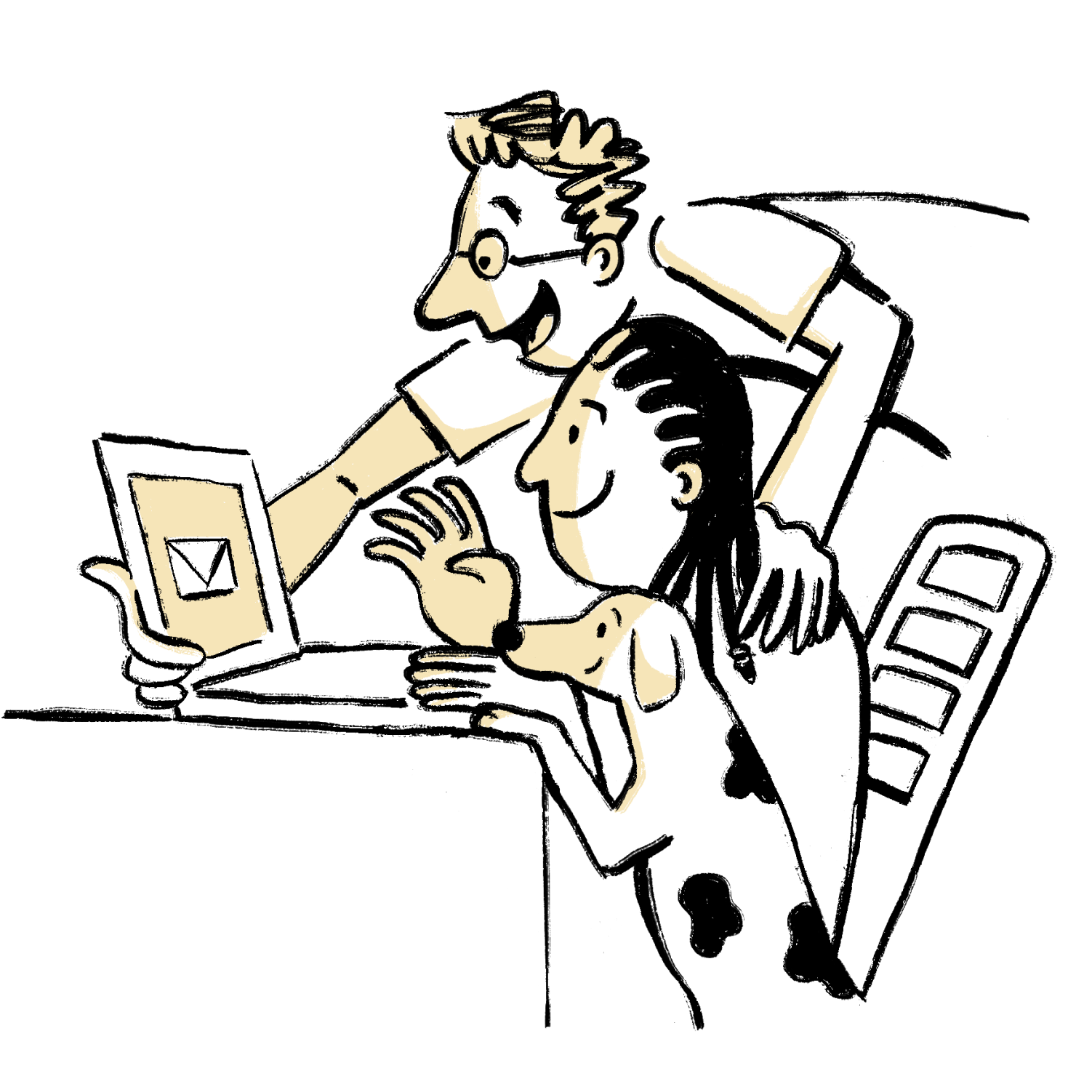Would your dream like fries with that? How marketers are coming for your dreams
Advertisers want to insert commercials into your dreams. And according to this group of scientists, they're pretty close to having the tech to do it.

Image: a subject wearing the Masca, a sleep stage detection device invented by MIT. Photo by Oscar Rosello.
The 2010 film Inception painted a bleak picture of dream infiltration: bandits, led by Leonardo DiCaprio and armed with hi-tech gadgetry, planted ideas in Cillian Murphy's dreams to influence his waking-life decisions. At the time it all seemed like a far-fetched if quite nicely produced romp. But according to a recent essay in Aeon, the scenario may be more realistic than we thought.
The article, which was published by a trio of scientists from Harvard, MIT and the University of Montreal, claims that marketers are currently working on technology that will allow them to inject advertising into the stories that unfold in our sleep. "Multiple marketing studies are openly testing new ways to alter and drive purchasing behaviour through sleep and dream hacking," the authors write, referring to a process known as ‘targeted dream incubation’, which allows a person’s dreams to be directed by outside forces.
The authors, it should be noted, aren’t against dream incubation itself—on the contrary, two of them actually invented the technology that may one day make dream advertising possible. Known as Dormio, the device detects when a wearer slips into the liminal state between consciousness and subconsciousness known as hypnagogia. When that sleep state is detected, the device plays a pre-recorded audio cue that directs the wearer’s dreams. In one study, tigers were successfully inserted into 50 people’s dreams; in another, trees grew and eventually took over the subjects' dream spaces.
The scientists predicted that their invention would allow people to use dreams as VR-like experiences, letting them act out fantasies such as flying, singing or—yes—even sex. But the authors also had higher hopes for their research. People with post-traumatic stress disorder (PTSD) often suffer from recurring nightmares, and the researchers hoped that a Dormio-like device might allow these people to rewrite the narratives of their nightmares, helping them to reprocess a traumatic memory using the god-like power often granted to sleepers in a lucid state.
A study found that 77 per cent of marketers plan to experiment with so-called ‘dream-tech’ advertising over the next three years.
Of course, it didn’t take big business long to work out a way to monetise dream incubation. In 2021, the three researchers were disheartened to see an advertisement for the beverage company Molson Coors appear before the Super Bowl. The campaign promised participants free beer for taking part in a dream incubation study involving dancing beer cans. (Zayn Malik and a talking fish were somehow also involved.)
The campaign wasn’t exactly a resounding success—Malik later said the project was “kinda messed up”, and Coors sales stayed more or less consistent with pre-inception levels. But the paper’s authors worry this may only be the start of a worrying trend, citing a 2021 study by the American Marketing Association that found that 77 per cent of marketers plan to experiment with so-called ‘dream-tech’ advertising over the next three years.
In response, they’ve penned an open letter (co-signed by 40 other scientists) denouncing dream-hacking advertisers, and arguing that the federal body in charge of advertising regulations in the US should work to ban dream hacking before more sophisticated means of incubation are developed. The authors are particularly worried that wearable technologies such as smartwatches could be used without our knowledge to monitor our sleep states and hack our dreams surreptitiously.
This isn’t the first time that such fears have been voiced. In the 1950s, a market researcher named James Vicary claimed to have boosted popcorn and Coca-Cola sales by flashing subliminal messages during film screenings, leading the US government to worry about the possibility of communistic brainwashing should the USSR ever get its hands on the technology. They needn’t have worried; Vicary later admitted he'd faked his study, and subsequent research has shown the effects of subliminal messaging to be so weak as to be more or less non-existent.
Dream incubation, on the other hand, could well prove more effective—if a couple of masters’ students are able to insert tigers into people’s dreams, it seems plausible that popcorn and Coke may be around the corner. As the authors write, “We now find ourselves on a very slippery slope. Where we slide to, and at what speed, depends on what actions we choose to take in order to protect our dreams.”
